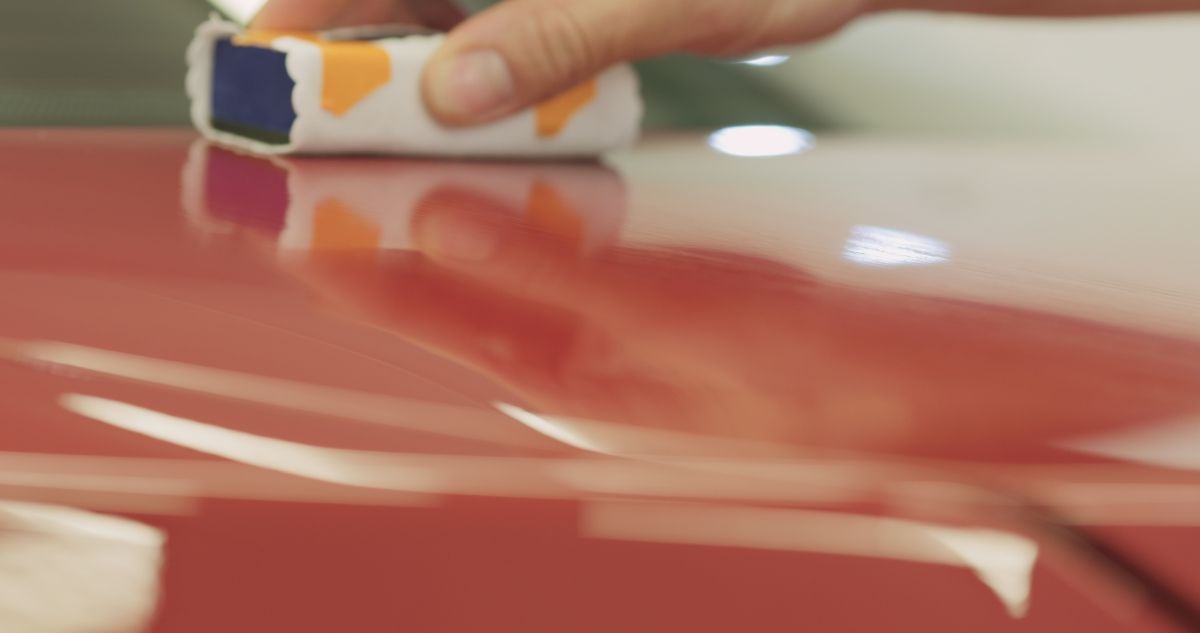Have you ever considered a ceramic coating for your car? Have you ever heard of ceramic coating? Maybe it’s something you’ve pondered, but you’re just not quite sure about it. Maybe you’ve heard some strange stories about it. Whatever the case, we’re here to set your mind at ease with everything you need to know about a ceramic coating for your car.
First of all, what exactly is a ceramic coating? Good question. A ceramic coating is a liquid polymer that is applied by hand to the exterior of your vehicle. The coating chemically bonds with the vehicle’s factory-applied paint, creating an extra layer of protection. It also creates a permanent or semi-permanent bond with the paint on your car, so it doesn’t wash or wear away, and it doesn’t require repeated, ongoing applications (as with car waxes).
Why get a ceramic coating? A ceramic coating offers a number of benefits that wax cannot, such as:
Protection against chemical stains and etching: Naturally acidic contaminants can chemically stain your car, but by creating a chemically resistant surface, a ceramic coating can keep contaminants from bonding to your car’s paint. As a result, your vehicle will be less likely to stain or become etched (so long as the contaminant is removed as soon as possible).
Protection against oxidation and UV damage: Paint that is exposed to the sun frequently will begin to oxidize after some time, which results in faded or dulling paint. A ceramic coating protects the paint from those harsh UV rays, therefore reducing the oxidation and preserving your paint job.
Increased glossiness: Ceramic coatings enhance the vehicle’s paint and clear coat, making their reflective properties pop and giving your car a deep glossy shine.
Cleaning is easier: Ceramic coatings repel water (hydrophobic), so dirt, grime, and mud will more easily bead up and roll off of the surface of your vehicle with one than without it. It will also make it easier to remove these contaminants when you wash your car.
It will increase your car’s value: By giving your car all of the benefits listed above, a ceramic coating will increase its value.
That being said, there are some things that ceramic coatings cannot do, so let’s make sure we tackle those as well:
Not a substitute for washing: If you have a ceramic coating applied, you still need to wash your car. While the hydrophobic element decreases the amount of contaminants that may pile up over time, you still need to wash your vehicle regularly to clean it completely. On the upside, with a ceramic coating, the wash will be easier.
Won’t stop water spots: Water spotting comes from the dirt and minerals in the water, and when the water evaporates, those elements are still left over. This is why you get water spots, and they will show up on a ceramic coating.
Scratches, swirl marks, or rock chips: While a ceramic coating does add an extra layer of protection to your vehicle, it doesn’t protect against particularly rough scratches, parking lot injuries, automated car washes, or rocks chipping your car’s surface. It does offer an extra layer of protection, but that protection isn’t bulletproof.
So, is a ceramic coating a good option for your vehicle? Overall, a ceramic coating will help maintain your vehicle’s exterior, offers invaluable protection against UV rays and oxidation, makes washing your car a breeze, and offers an extra layer of protection, which may prevent some scratches and minor cosmetic damage. It adds value to your vehicle and will likely increase the longevity of your paint job. It’s absolutely a worthwhile investment.

